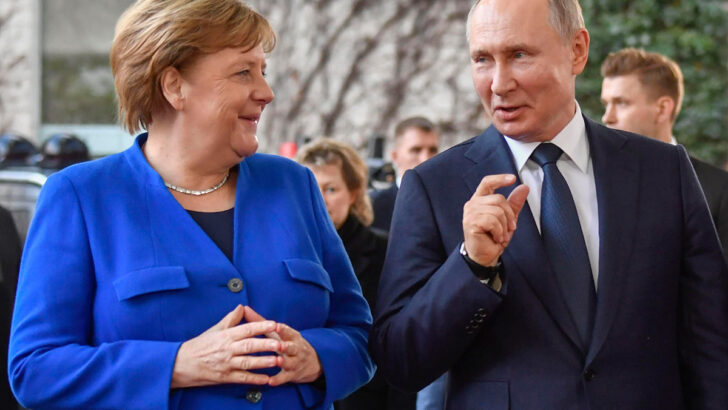In the politics of recent times the German Chancellor stands out for her major efforts to sustain the unity of Europe. This may well be because her own life grew out of an experience of what happens when nations are divided.
When, in the aftermath of World War II, Germany – an historical unity only since the creation of the modern German Empire in 1871, after the defeat of the French at Sedan – was divided by the Iron Curtain into two states, the Federal Republic of Germany in the west and the Democratic Republic in East Germany.
Duty
Merkel’s father was a Lutheran pastor, and sensed that it was his Christian duty to move to the East to help the people living under the new Communist regime to maintain their historic Christian faith. It was for him a necessary choice, for his family a hard one. The call of duty marked his daughter for life.
But from this childhood a remarkable woman emerged. What is immediately striking in this book are a few episodes of interest for a reader to whom the too-ings and fro-ings of politics in Germany and Europe are of secondary interest. Among them are the relations Angela Merkel had with, on the one hand Donald Trump, and on the other with Vladimir Putin.
Putin met his match. More than merely speaking his language, Angel Merkel had experienced a Russia few heads of state see”
Neither are men who have much time or respect for women in leadership roles, though Trump’s disdain is expressed with his characteristically crude language. They both admire, of course, strong leaders, so for both of them to encounter a strong leader who was female was a jolt to their views of the world.
The effects of the encounters are interesting though. “In Angela Merkel,” Kati Marton writes, “Putin met his match. More than merely speaking his language, Angel Merkel had experienced a Russia few heads of state see.”
Her trip to Moscow in her early teens to receive a prize in a Russian language competition left a deep impression. There was the huge size of the country as a whole, the heroic quality of Moscow’s public buildings. But then there was also the daily regime of over-surveillance. This had provided the immediate model for the strict regime of East Germany she lived under growing up.
She also hitchhiked in Russia as a student, and had the experience of being arrested and made by the police to write an essay on ‘Why I broke the law, even though I have a university degree and know the law’.
The next time she visited Russia, she came as Chancellor. She talked to Putin in his native Russian, heard out his stream of complaints against the West. Then she said: “Look, Vladimir, this is not how the rest of the world sees things. This is not in your interest.”
Daunting
In Merkel Putin met a woman of education who knew and admired Russian culture and literature in a way he could not. She had a daunting personality.
If Merkel was the only head of state Putin respected, with Trump things were different. She was warned by his staff not to lecture him, not to have too many details. She was told he had a low attention span. He was “a half-page man”.
But her quiet-spoken authority impressed him nevertheless. Mrs Thatcher had annoyed him; later he said he could “listen to Angela all day”. Chancellor Merkel was a woman who could certainly handle difficult men. She was her father’s daughter.
All this is fascinating, and still very relevant to how we are today. But behind her great success as a leader we have still the child of a broken nation, as some saw it. When the East German regime disappeared, there was a choice: let it continue as a separate entity, taking its own time to come to the level of West Germany, or be at once united with the rest of Germany.
Many Irish readers will seize upon this situation as one with great relevance to this island as a whole today. It would be as well if we thought more about the matter of Irish unity, warned by the events in Germany, which led to lasting resentments in the East. We need ourselves to study and understand such models of reunification, and not see our problems as easy to solve, just as was claimed for Brexit.


 Peter Costello
Peter Costello Chancellor Merkel meets President Putin
Chancellor Merkel meets President Putin 